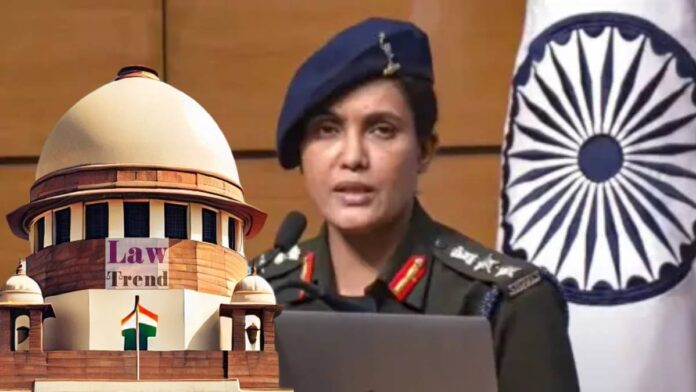In a landmark judgment on 17 February 2020, a division bench of the Supreme Court comprising Justice Dr. D.Y. Chandrachud and Justice Ajay Rastogi upheld the Delhi High Court’s decision, directing the Government of India to grant Permanent Commission (PC) to women officers in the Indian Army. The Court rejected discriminatory barriers and cited examples of exemplary service by women officers — notably Lieutenant Colonel Sophia Qureshi — to underscore the unjustness of gender-based exclusions.
Background:
The case originated from a set of writ petitions filed by women officers and advocate Babita Puniya before the Delhi High Court in 2003 and 2006, seeking parity with male Short Service Commissioned (SSC) officers in the grant of Permanent Commission. Despite a favourable High Court judgment in 2010, the Union Government delayed its implementation, prompting a prolonged legal battle that culminated in this Supreme Court verdict.
Key Observations:
In its strongly worded judgment, the Supreme Court recognised the valuable contributions made by women in the Army and condemned the Union Government’s reliance on stereotypical assumptions about physiological limitations, motherhood, and battlefield conditions. The Court categorically stated that such arguments reflect entrenched bias and are constitutionally flawed.
Quoting from paragraph 56 of the judgment (page 873), the Court observed:
“Women officers of the Indian Army have brought laurels to the force. These are documented in the course of proceedings and have not been controverted in the submissions.”
One of the key illustrations offered by the Court was the exceptional career of Lieutenant Colonel Sophia Qureshi of the Army Signal Corps. The Court noted:
“Lieutenant Colonel Sophia Qureshi (Army Signal Corps) is the first woman to lead an Indian Army contingent at a multi-national military exercise named ‘Exercise Force 18’, which is the largest ever foreign military exercise hosted by India. She has served in the United Nations Peacekeeping Operation in Congo in 2006 where she, along with others, was in charge of monitoring ceasefires in those countries and aiding in humanitarian activities. Her job included ensuring peace in conflict affected areas.”
This citation was a powerful rebuttal to the claim that women are unfit for command or arduous assignments. The Court emphasised that denying PC on the basis of gender would be an affront to the dignity of all officers, both men and women, who serve equally under the flag.
Court’s Ruling:
- The Court declared that the policy of granting PCs only to women officers with less than 14 years of service was arbitrary, especially since delays were attributable to government inaction.
- It held that all serving women officers in SSC — irrespective of whether they had served more than 14 or even 20 years — must be considered for Permanent Commission.
- The Court struck down the bar on women officers holding command and criteria appointments, stating that blanket exclusions violate Article 14 of the Constitution.
The Bench remarked:
“An absolute prohibition of women SSC officers to obtain anything but staff appointments evidently does not fulfill the purpose of granting PCs as a means of career advancement in the Army.”
Final Directions:
The Supreme Court mandated that:
- All serving SSC women officers be considered for PC irrespective of their service length.
- The restriction of appointments to “staff positions only” in the 25 February 2019 policy shall not be enforced.
- Officers granted PC shall receive all consequential benefits, including promotion and financial entitlements.
Conclusion:
This judgment not only ensured structural equality in the Indian Army but also dismantled longstanding gender stereotypes. By highlighting the achievements of officers like Lt. Col. Sophia Qureshi, the Supreme Court sent a clear message — constitutional rights and professional merit must override outdated notions of gender roles in military service.




